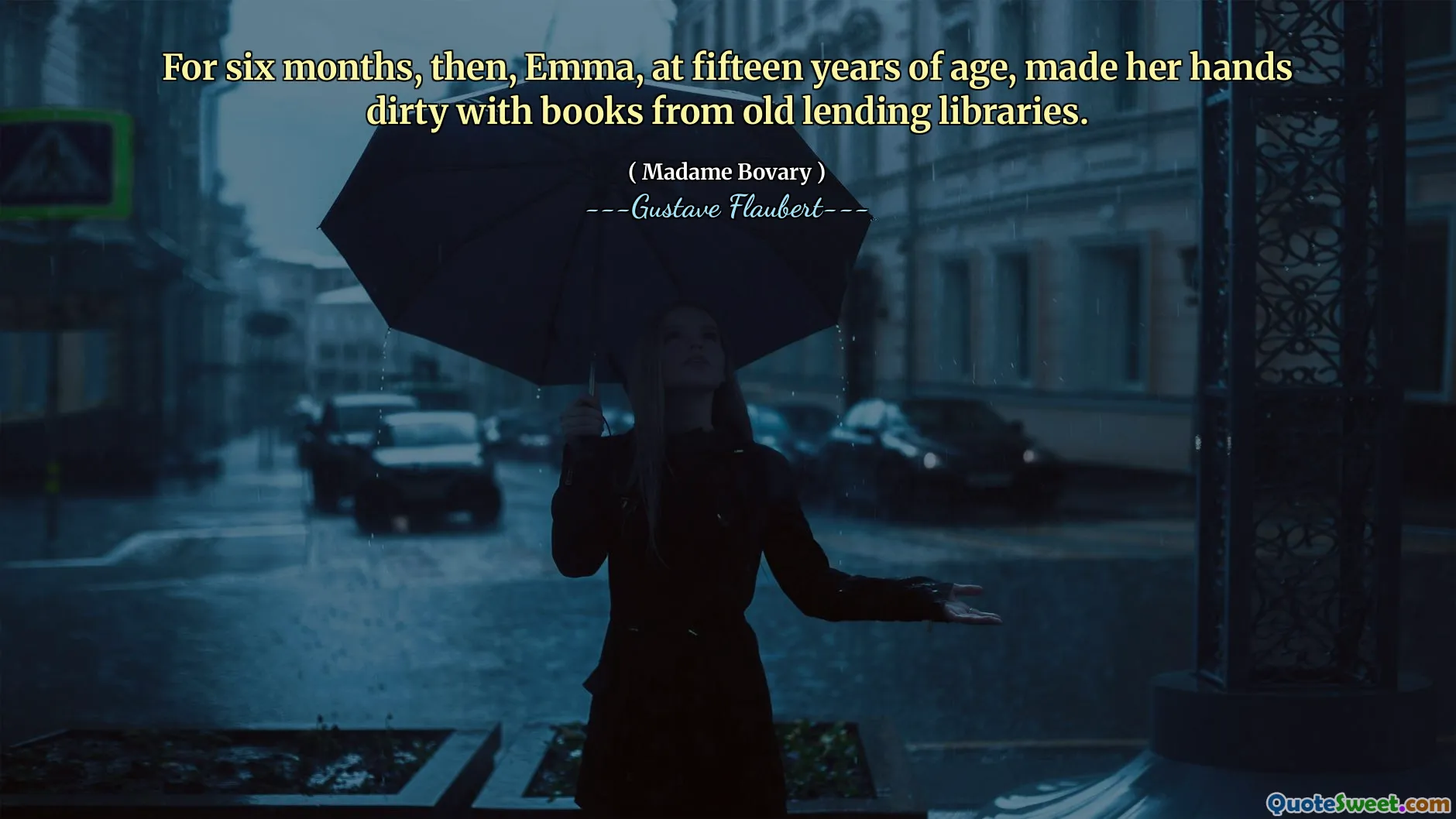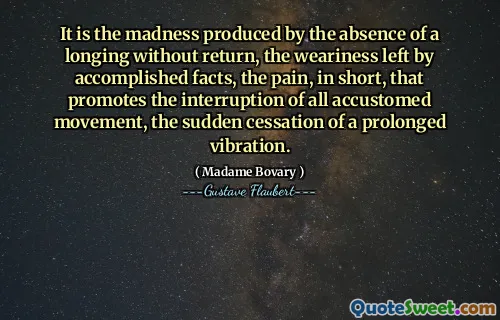
For six months, then, Emma, at fifteen years of age, made her hands dirty with books from old lending libraries.
This quote from Gustave Flaubert's Madame Bovary beautifully captures a poignant moment in the life of Emma, the novel's protagonist. The phrase "made her hands dirty with books" vividly illustrates not just the physical act of reading, but the deeper engagement and immersion Emma experiences with literature during her adolescence. At fifteen, an age often marked by a search for identity and the shaping of dreams, Emma finds herself drawn to the world beyond her immediate reality through the pages of books. The reference to "old lending libraries" suggests a connection to the past—knowledge and stories passed down, possibly representing both escape and education.
This stage in Emma's life is crucial because it reflects the beginning of her yearning for something more than the provincial life she leads. Books become a gateway into romantic ideals and passionate dreams, shaping her perceptions and setting her on a path that ultimately leads to her tragic dissatisfaction. The metaphor of making her hands "dirty" is an intriguing choice as it contradicts the usual notion that reading cleanses or uplifts; instead, it acknowledges the complexity and messiness of human experience and desire. It also conveys a sense of active participation rather than passive consumption—Emma is not simply reading; she is engaging and perhaps becoming marked by what she reads.
Flaubert's descriptive choice highlights the formative power of literature and education, especially for young minds eager for direction and meaning. It invites readers to reflect on how early experiences with books can influence personal aspirations and realities, sometimes inspiring hope, but other times, as in Emma's case, leading to profound disillusionment. This elements enrich the themes of idealism versus reality and the dangers of escapism that pervade the novel.







